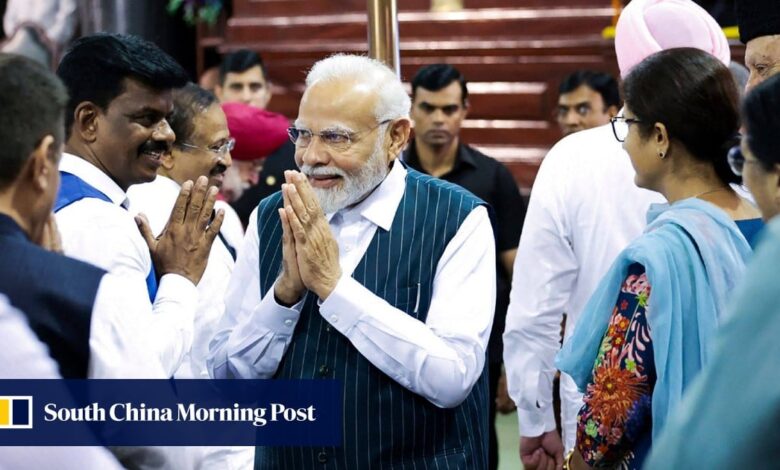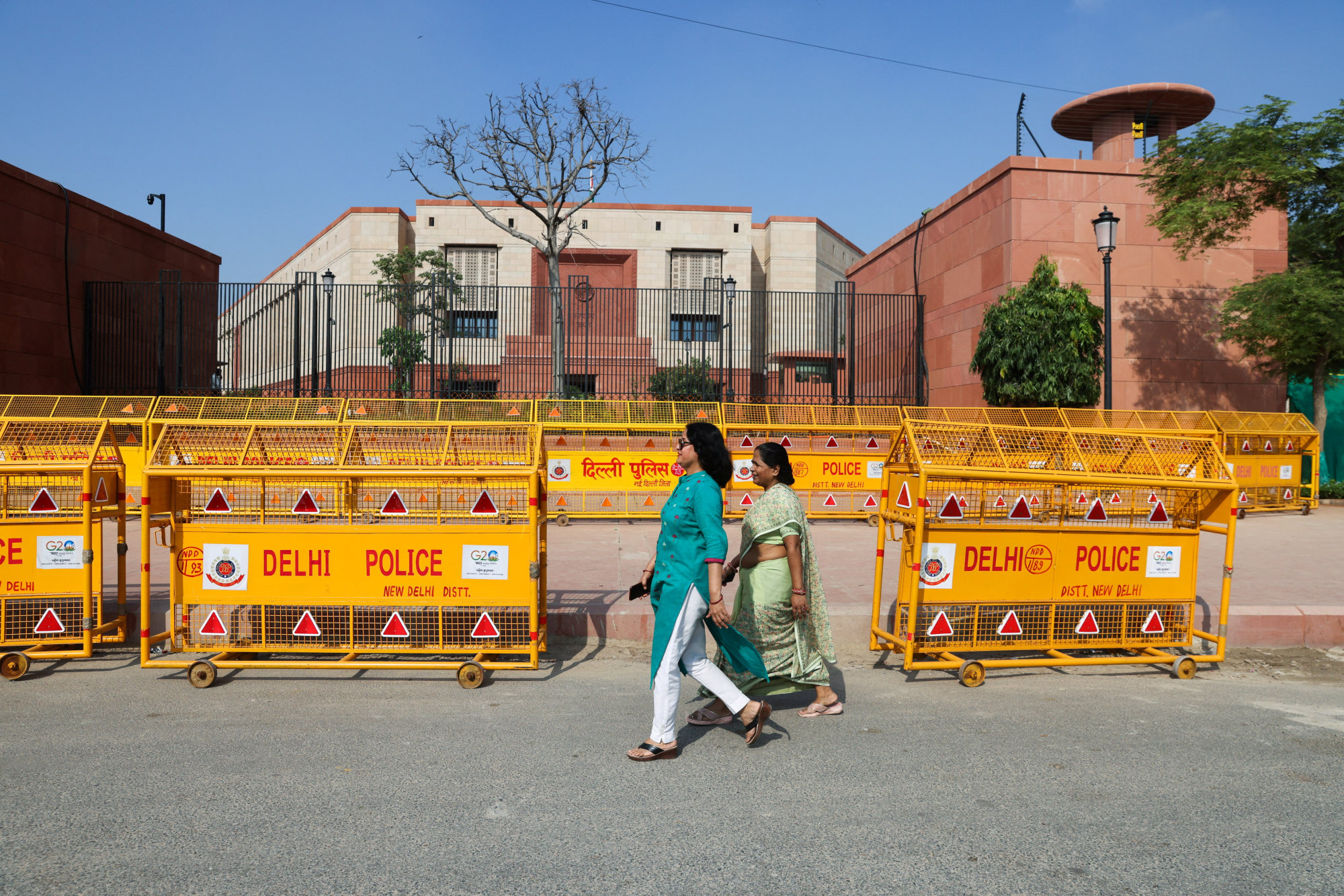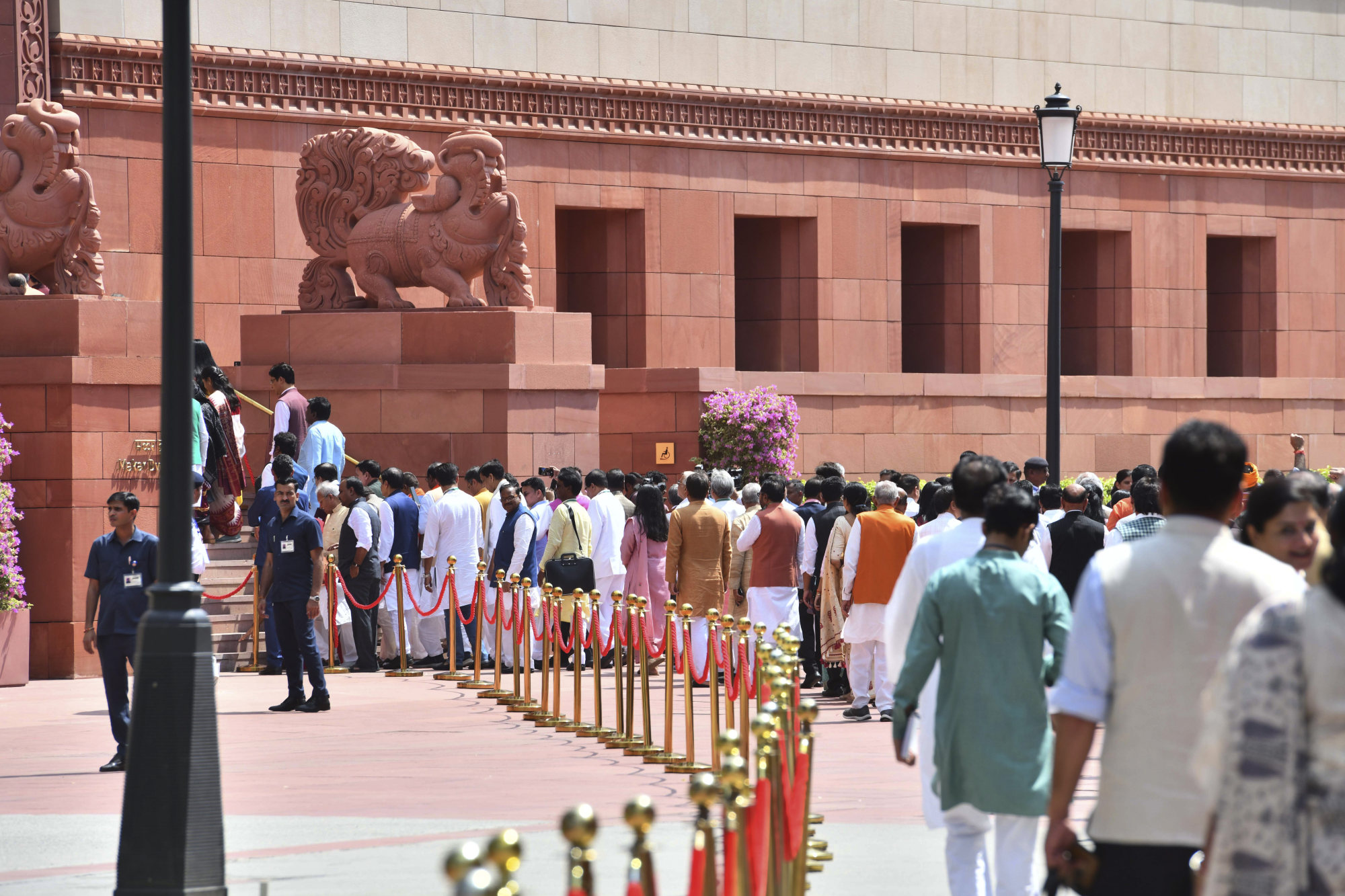In India, a third of lawmakers will soon be women. Is it ‘historic’ or an empty gesture?

[ad_1]
The Women’s Reservation Bill, first mooted in 1996 to ensure women are represented at the federal and state levels, was presented to the lower house on Tuesday and welcomed by politicians across the spectrum in a rare moment of unity.
While the bill will transform the face of the traditionally male-dominated parliament after it is approved on Friday as expected, it may not come into force before the 2024 general election as it needs the redrawing of constituencies based on fresh census numbers, which may take years to conduct. The once-in-a-decade census was due to be completed in 2021 but was delayed because of the pandemic.

“We want more and more women to join the development process of the country,” Modi said during a five-day special session that began on Monday.
Critics of Modi say the revival of the bill is designed to reach out to a critical voting bloc as he seeks a third term in the next polls.
“Modi will get all the applause and will not have to do anything for the long foreseeable future,” said Yogendra Yadav, an activist and a political analyst. When you tie the reservation with the census, you have postponed it by five years at least, he said.
Still, others have said the move is a sign of progress, considering the way the bill was first received three decades ago. Back then, some politicians had said there were not enough talented women to fill 33 per cent of seats.

Mulayam Singh Yadav, a former defence minister, said in 2010 that reserving seats would only empower “women with short hair” – a phrase used to deride educated and assertive women, as opposed to longer-haired women who are perceived in India to be more demure.
A few lawmakers expressed concern that women in power would be “proxies” for their husbands or sons who would make the decisions behind the scenes, especially at lower levels of politics like village councils, where a third of seats have typically been reserved for women since the 1990s.
“My elected village head is a woman, but she is merely a ventriloquist’s dummy. She is barely literate and makes no decisions. It’s her husband who wields the power, not her,” according to Akash Aggarwal, a retired businessman living in New Delhi.
Women make up almost half of India’s 950 million registered voters. India had a female prime minister for over a decade – Indira Gandhi – and current President Droupadi Murmu is the second woman to hold that office. But female representation in parliament remains among the lowest in the Group of 20 economies.
Across Indian state governments, women account for 10 per cent of lawmakers in 11 states and 5-10 per cent in the other 17 states.
The 33 per cent reservation for women will not apply to the upper houses of parliament and state legislatures.
The bill, which has bipartisan support, is expected to become law on Friday after being approved by both houses. It is expected to boost the number of women in parliament from the current 82 to 181.
But “political parties should not wait – they should start finding winnable candidates among women right now”, said an editorial in the Hindustan Times on Wednesday.
Additional reporting by Bloomberg and Reuters
[ad_2]
Source link





